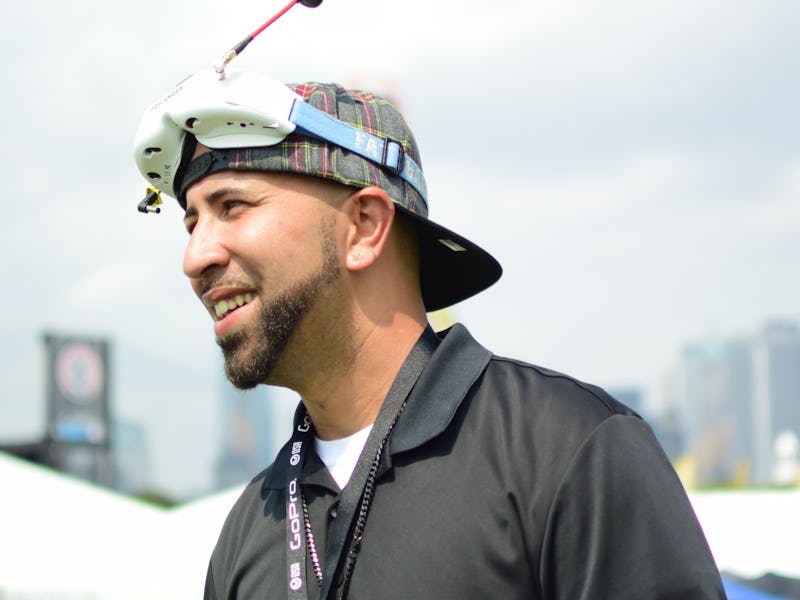How Drone Racing Can Help at-Risk Youth
There's an underutilized opportunity in drone racing.

Alex Vargas believes drone racing can change lives. At his job as a therapeutic mentor at Child & Family Services in New Bedford, Massachusetts, a town of 13,000 about 20 miles from Boston, Vargas says he uses drones to connect with at-risk and gang-affiliated youth.
Drone racing and social services aren’t a natural fit. The hobby is expensive, and takes a lot of equipment and space. Yet Vargas recognizes that drone racing has something to offer that other sports don’t. The pricey equipment offers a lesson in responsibility, the controls and drone maintenance teach fine motor skills and even basic engineering, and it gets kids out of the house in productive ways.
Inverse caught up with Vargas on August 6 at the Drone Nationals on Governors Island in New York City. He was hoping to race, but wasn’t able to make it to the qualifying rounds the week before. Still, he was able to meet some of the country’s top racers, and he found a lesson to bring back to his kids.
Alex Vargas helps at-risk youth with drones.
Drone racing isn’t the easiest sport to jump into. What is the first thing you teach the kids you work with?
No, it’s definitely not. Some kids, they’re very impatient. But it starts with responsibility. These things are dangerous if you make them that way. You’ve got to know where and when to fly, because if it malfunctions somebody could get hit.
So first I teach them to be responsible and make sure there’s nobody in the area, stuff like that.
What are you looking to do in the future? Do you hope to get kids involved in competitive races?
I’d love to travel and race and motivate kids to stick with the sport and stay out of the street. Some of these kids are gang affiliated and stuff like that, and ever since I’ve shown them this, their life has changed. That’s what I took the job for was to help kids, but I don’t have enough funds to keep going cause the drones break. But I try the best that I can and with the little bit of money I can get I try to make it good for them.
People think drones are either a nerdy hobby, or too expensive. What do you say to that?
It seems like a nerdy event. I don’t mind, it doesn’t bother me one bit. When I fly and practice on my own I bring an extra set of goggles so spectators that are watching can see. Sometimes people will think you’re recording them or trying to be a perv or something, so I let them see what I see when I’m flying. Some families want me to teach their kids on the side. I wish I had all the money in the world to do it, because I would open up a shop on how to help kids grow this hobby.
How does drone racing help at-risk youth?
It’s very competitive. It’s a rush. One of my clients is very gang affiliated. He didn’t want anything to do with it, he thought it was a nerd sport, that it wasn’t cool. He didn’t want his friends to see him with the goggles. Once I took him out to a course and showed him what he could do and his friends got to see how cool it was, now he’s all about it and he is racing with me. He’s getting all his friends into it, and they want me to teach them.
It’s a lot of time and a lot of money, but I can see it being a big thing for these kids to help take them off of the street.
What do drones have that other activities don’t?
Drone racing teaches multiple things. It teaches responsibility, motor skills, when and where they can fly, it gets them out of the house. A lot of the kids don’t want to leave the house, but drone racing is fun and adventurous and something you remember for the rest of your life.
Once you go up there, you forget about everything you’ve done. It’s very therapeutic, and being a therapeutic mentor, I don’t see anything better than this for the kids.
Even though you didn’t get to race at Drone Nationals, what do you hope to bring back to your kids from this trip?
I didn’t get to compete or anything like that, so I get to teach them to not give up when something gets in the way. Keep pushing forward, your dreams can come true.
That’s my whole goal for this. Give them the opportunity, and help them grow from it.
This interview was edited for clarity and brevity.